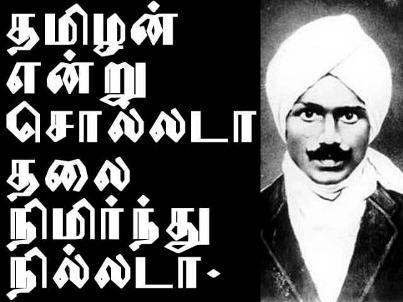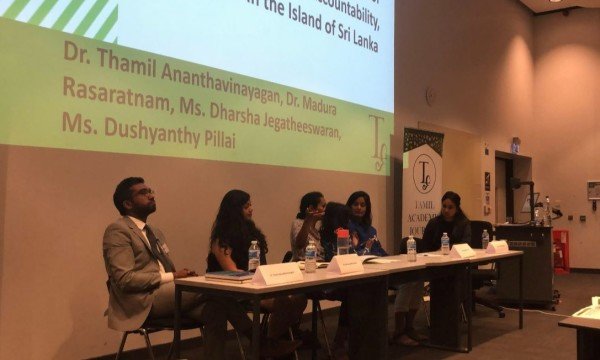
“Your profession is not what brings home your paycheck. Your profession is what you were put on earth to do… with such passion and such intensity that it becomes spiritual in calling.”
-Vincent Van Gogh
Everything in life requires money – the food we eat, the water we drink, the clothes we wear, the houses we live in and so forth. Directly dependent on the quality of one’s lifestyle is the financing required to fund both these necessities and excesses.
One may have an avaricious appetite for extravagant luxuries. One may want high social status. One may have creditors to pay off or responsibilities to the family such as caring for elderly parents or saving for one’s potential families. Furthermore, as an Ilankai Tamil expatriate, one also has an obligation to the motherland. All these require money and consequently a financially rewarding career. It is easy to see what leads youth to choose a career that is financially fulfilling. But to choose one solely for monetary reasons is folly.
There is nothing wrong or immoral in choosing a profession that reaps great financial dividends. But one must also ensure that it is compatible with one’s temperament and capabilities. Every vocation requires a certain disposition and aptitude. An engineering career requires strong analytical skills and a desire to be challenged. If someone better suited for the liberal arts were to enter the engineering field solely for its guaranteed starting salary of $50,000, he or she would undoubtedly struggle. The work will become a daunting and uninteresting chore, and their career path would be filled with disappointments and frustrations. This would not only prevent one from efficiently utilizing their skills and talents, but the job’s emotional rewards would not be appreciated as much and may even be overlooked.

In addition to the necessary slew of attitudes and competencies for a particular vocation, one must also consider other imperatives such as emotional satisfaction. Emotional fulfillment is achieved when one has a passion for his or her work. When you genuinely enjoy what you do, work becomes play. Social workers choose their careers because of innate philanthropic desires. Artisans persist with their niche despite financial insecurity because they have an honest passion for what they do. It is highly unlikely that such satisfactions and passions could be achieved and aroused if one were to pursue investment banking for the sole purpose of earning a six figure salary.
Furthermore, when one enjoys one’s work, there is a propensity to excel and be more productive. History has documented intellectuals and virtuosos who chose their fields because they had a passion for their work. Figures like Edison, Einstein and Beethoven enjoyed what they did; money was not the driving force in their career choice. Had Subramanya Bharatiyaaar chosen a life of materialistic indulgencies, the world would have been deprived of his unique bohemian talent. If Edgar Allan Poe did not have a passion for poetry, no pleasure would have been derived from his poems. This is not to suggest that vocational choices based on passions makes one a genius. But it is undeniably an integral part of the formula for a successful career. The monetary rewards of a career pales in comparison.

To lead meaningful lives, our jobs have to be deeply meaningful as well. Our careers must assert our more profound values and allow us to contribute to things larger than ourselves. By choosing careers with practices that are in accordance with what we hold highest, our lives become more meaningful. This may be aiding a cause, redeeming a social condition, or advancing an art or science. Many people choose to remain in financially unstable jobs because it allows them to contribute to things far greater than materialism. Armed forces personnel and law enforcement officers choose their vocations to contribute to society and to be true to ideals such as protecting the innocent, preserving the common good and so on. Conversely, choosing a career in IT solely due to the ease of finding employment lacks authenticity and depth.

A common misconception within Tamil circles is to equate a successful vocational life with earning heaps of cash. Amidst a host of careers, most Tamil parents tend to steer their children towards engineering, accounting, medicine or information technology for its financial security and social status. This is understandable as no parent wants their child to suffer financial shortcomings and privation.
Yet often youth adopt a self-defeating attitude to merely appease their parents. They put their dreams and desires on the back burners for the sake of high wages and social status. This could have adverse effects on their psyche. They would drift through life harbouring feelings of self-doubt, indifference and resentment, and fail to fully self-actualize for their own personal growth and enrichment.
A career is more than just bringing home the bread. It should reflect both the emotional and financial needs of the individual. But one should be careful not to narrow-mindedly choose a career based on monetary rewards alone. It should be enjoyable, engaging and meaningful. Making this choice is no easy task and requires much introspection.
Achieving success in one’s career is never easy. This path is riddled with obstacles. This may mean undertaking difficult studies, sacrificing financial security, relationships and social status, and putting up with rejections, ridicule and other hardships. But success is reserved for those who persevere. An individual needs to reflect on their situation and make such life changing decisions with care and discretion. After all, this is not just a choice in careers. This is an affirmation of life. Choose a life and choose it wisely. And choose it with infinite optimism.
- Sai Tharma

























